The Argument for Hemp Masks Is Compelling, Here’s Why
The Only Eco-Friendly Face Mask Is Made of a Misunderstood Fiber!
For face masks, there is a thin line between safety and comfort.
N95 masks form a tight seal around the mouth and nose. This prevents the spread of particles and droplets, increasing safety.
But the tightness of the seal decreases comfort. To ease the stifling feeling around the face, masks need to be of a softer, breathable material. They need a looser fit. This decreases safety, but it is passable for non-medical civilians who rarely travel.
Face masks also need a comparable balance between sustainability and comfort.
The medically recommended masks — like N95 — are made of plastic microfiber, such as polypropylene, polyester, and polyamide. These are easily manufactured, and the microfiber help filter impurities faster. The “95” in the “N95” denotes a 95% efficiency at filtering particles!

But these masks are non-biodegradable. This means they do not degrade after their utility ends. They also cannot be washed on a regular basis. Thus, they cannot be reused. Waste builds up into thousands of tons. Synthetic plastic and polymer waste is a scourge upon the Earth. It kills animals and plants alike.
So, we choose biodegradable cloth masks, such as hemp and cotton. They biodegrade when disposed of into landfills, rivers, and oceans. They break down into organic substances, absorbed easily by the Earth’s living components. Their components are only waste for a few decades. They do not endure in their original form for hundreds of years, like plastic masks.
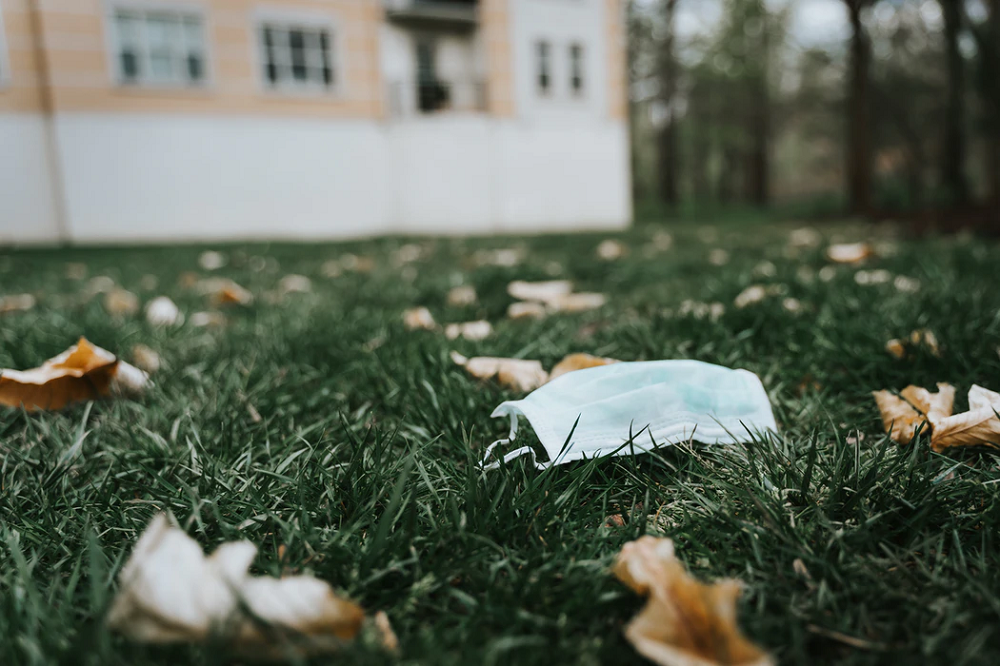
What Makes Hemp Masks Special:
1. A fibrous strength that endures –
Hemp fiber possess fourfold the strength of cotton ones. Stronger fiber result in longer utility periods. They won’t deteriorate when washed, dried, and beaten. Throughout their life cycle, they will maintain a definite form and structure. This aids their fit-for-purpose nature on masks.
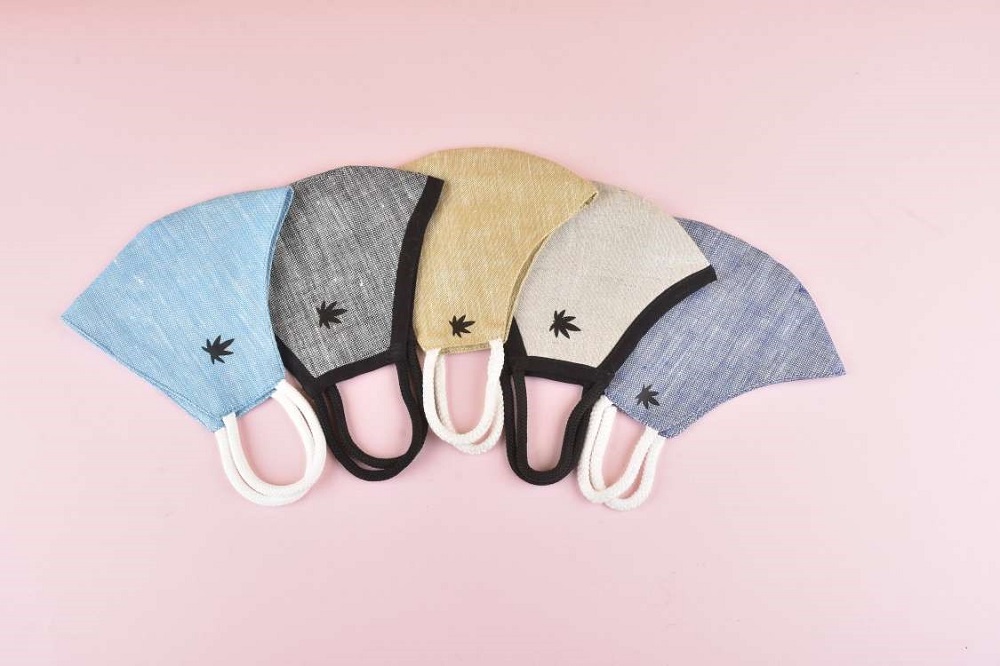
Water unlocks its lightness on the skin –
What differentiates hemp from cotton? It is stronger. And it is coarser.
“Coarser” isn’t very synonymous with comfort. It’s more synonymous with abrasiveness! However, after a considerable number of wash cycles, its fiber become softer. This eventually causes a lightness on one’s skin. Very important if you are going to be wearing your mask for hours at a time.
Ancillary infections do not stand a chance –
The COVID-19 coronavirus is dangerous, but there are several other infections that can affect a mask user.
Masks were initially made to combat these other infections, well before COVID-19 originated. They were used in industrial and construction worksites, or in highly polluted urban regions, where poisonous particles pervaded the air.
Hemp fabric is naturally resistant to microbes and their concomitant phenomena, such as mold and mildew. The hemp fiber’s hollow core also traps particles in it.
You’re not stuck breathing through your mouth to avoid bad smells –
Very few things are worse than the slow torture of a bad odour right in your face!
You don’t want to be stuck a few hours a day, at work, or in transit, while a mask rules your every second. Hemp avoids bad odours simply for the aforementioned reason: it’s antimicrobial!
If microbes cannot work their dark magic on the hemp fiber, then the smells that result from their activity also do not arise.
Porosity helps breathability –
The hemp fiber form patterns that are quite porous.
This allows air to percolate in and around your face, keeping your face’s temperature lower. This is especially useful for people in tropical climates. Synthetic polymer and plastic masks (such as N95) will make you sweat and will also form hurtful depressions in your face. Hemp, on the other hand, will keep your comfort zone intact.
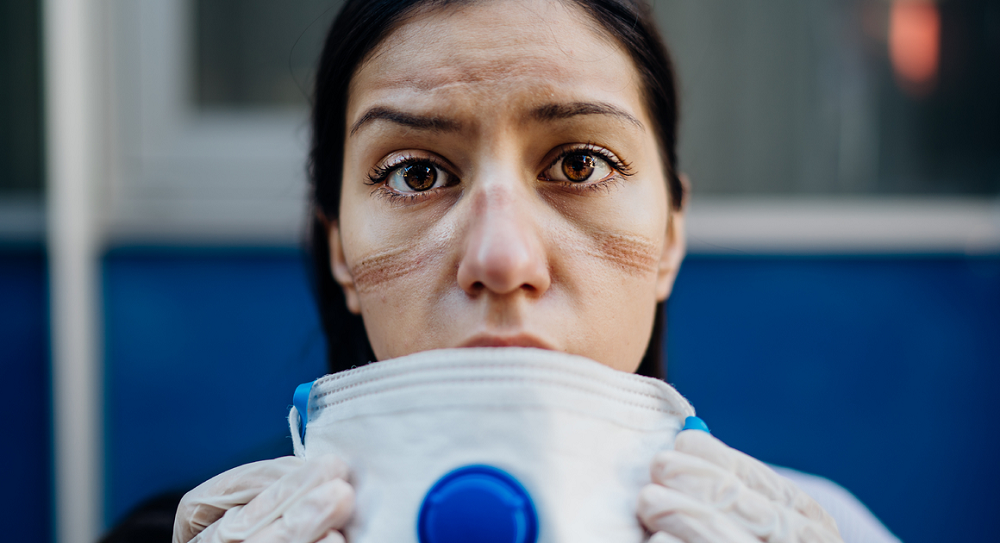
Hemp masks are hypoallergenic –
When covering your mouth and nose with a mask, you would need to ensure that your skin is not allergic to materials in the mask. Due to hemp’s starker and microbe-free nature, it diminishes the chances for allergic reactions. Adhesives, dyes, and other dubious chemicals found on synthetic masks are not needed on hemp masks.
Cleaner nature of pure hemp –
Compared to cotton, the hemp plant is more resistant to pests and microbes. Thus, in its cultivation, pesticides are not necessary. The hemp plant’s relative cleanliness bolsters its use for people worried about pesticide traces affecting them.
This also improves the environment around the crop. Any nation that cultivates hemp as an alternative textile and fibre product, benefits. The food chain and soil remain unadulterated by pesticide toxins.
Hybridization with other natural fiber –
Of course, if there is a shortage of hemp, it is always possible to combine it with cotton to create masks. There are 55% hemp and 45% organic cotton masks available for as much as $18. They are usually plastic-free, allowing greater freedom of disposal.
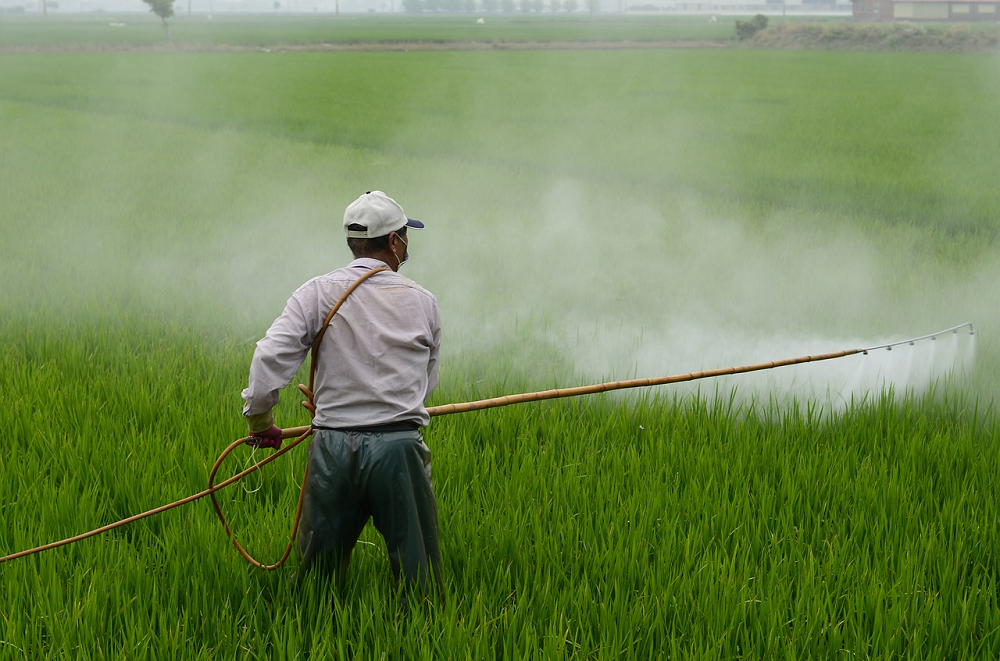
Gentler Environmental Impact –
As mentioned above, the impact of pesticides on a crop can be detrimental to an ecosphere. Hemp avoids this. What else does it avoid, within the environment? It uses up less water than other natural fiber like cotton and wool. A region that saves large amounts of water can be proud of its sustainability ethics.
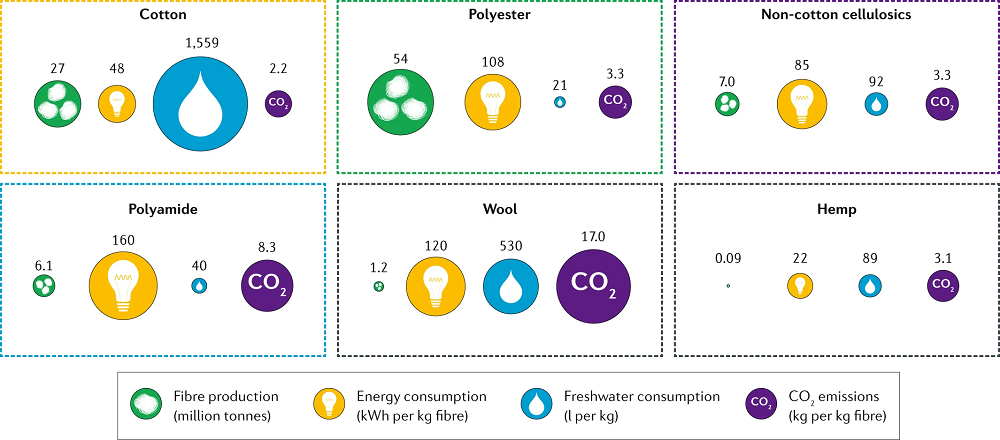
All these differences of hemp masks provide superior attributes that allow reusability, which is the main point for choosing natural fiber masks over synthetic masks.
How To Make The Most Out Of Your Hemp Masks?
Like any mask, the main purpose is to reduce the chances of COVID-19 transmission. Asymptomatic people can always transmit the virus to other citizens without knowing it. Remember that respiratory valves on better-performing N95 masks increase the chances of transmission because they allow one-way passage of droplets and particles from a user’s mouth and nose.

The pandemic has caused a palpable lack of medical-grade personal protective equipment (PPE) for those who are reliant on them the most: frontline health care workers. So, to remedy that, it is recommended that the general population wear non-medical grade cloth masks of hemp and cotton.
Since hemp is less efficient at filtering out impurities, it is imperative to keep on your hemp cloth masks at all times in public. The thicker the weave and the higher the number of layers, the better will the mask be. Double-layered masks can also come with a filter, to streamline the purifying process. These masks are usually 25 cm in length and 15 cm in depth.
How Do You Wash Them?
By soaking in detergent. If needed, you could disinfect the mask in boiling water for 30 seconds. The hemp fiber is strong enough to withstand the heat for that long. The longer one uses a mask, the environment benefits. Use 2-3 masks every week, to spread out its use evenly within wash cycles.
How Do You Dispose of Them?
You can dispose of hemp masks in a variety of ways due to their biodegradable nature.
- If you want to dispose of them in the local garbage system, make sure to isolate the mask in a paper bag for 72 hours before disposal.
- You can incinerate it, though this is not recommended, as it will cause air pollution.
- You can also make your own compost pit if you have yard space.
Hand wash refrain from touching your face, and social distance as much as possible. These are the measures that will ensure greater safety. Hemp masks are the right choice to make as a responsible citizen. They toe the line between safety and comfort. They make the world a safer place.
Author Bio –
Vishal Vivek, Co-founded Hemp Foundation to increase awareness about the most misunderstood plant on the planet. He believes that we can fight climate change, water crisis and plastic pollution with Hemp.
Times Group recognized him as a legendary entrepreneur and published his biography in “I Did IT- Vol 2” at the age of just 30!